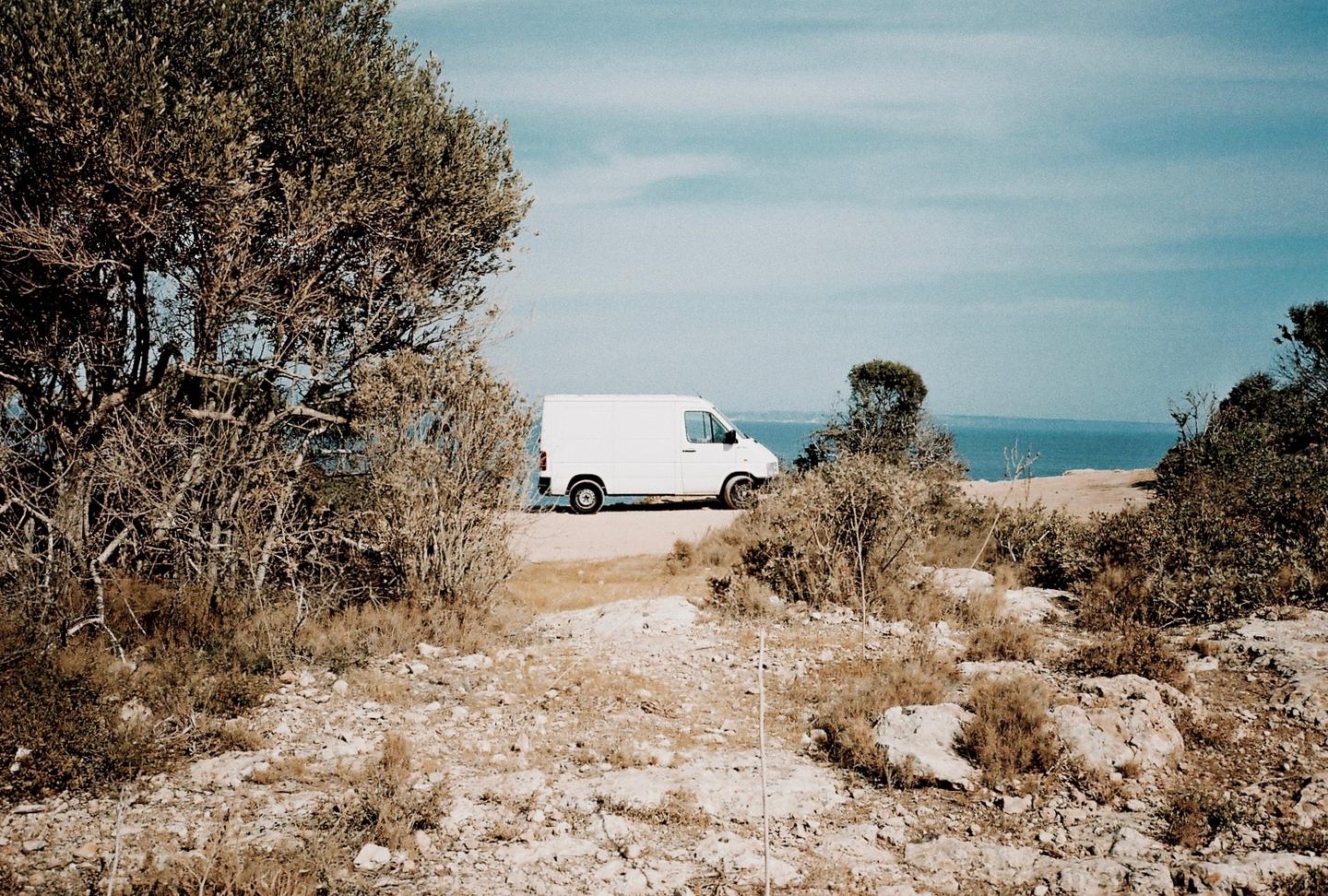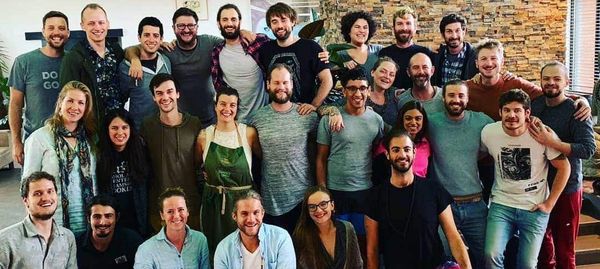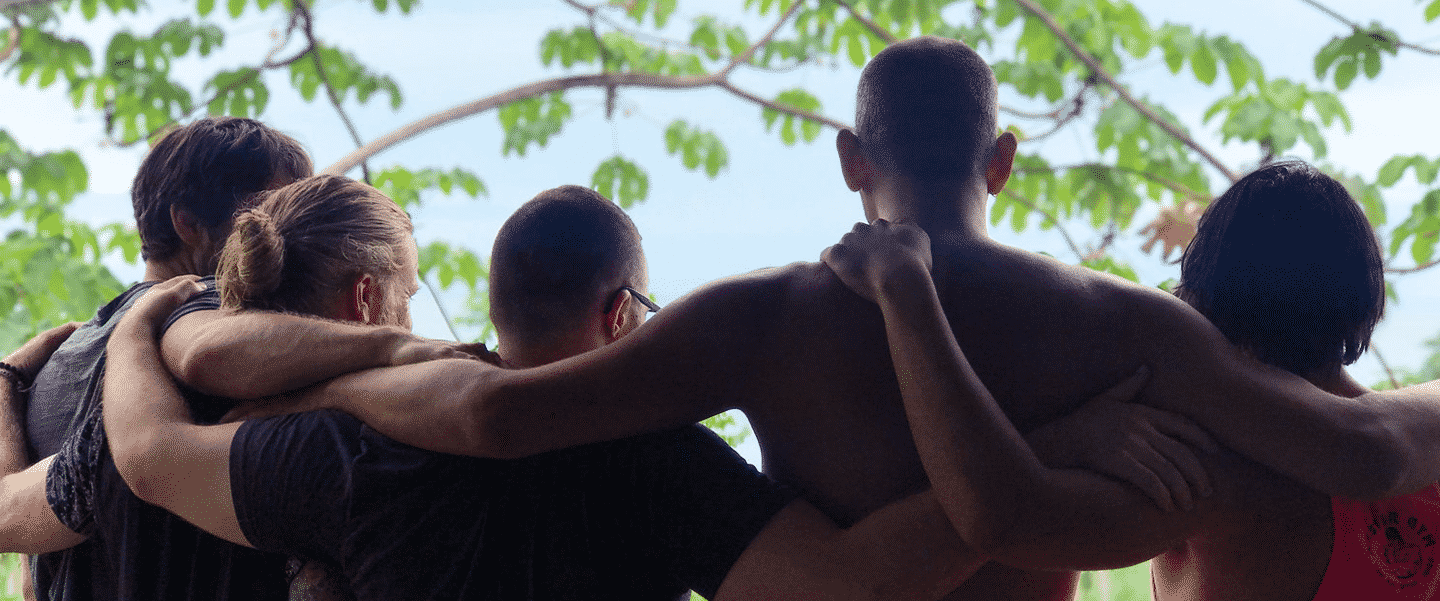Nat Dollin • • 9 min read
30 Uncommon Tips for Starting a New Life in a Foreign Country

About two years ago, I had saved up enough cash to finally embark on my “dream adventures.” The grand finale (after a few months of travelling) was to move to an island I had previously fallen in love with. All the work and the sacrifices in the interim had been dedicated to the pursuit of this fantasy.
I wanted to live in a place that inspired me. A place where diversity of culture and unspoilt wilderness were available in equal measure. Somewhere I could swim in the sea, and run in the mountains. Somewhere with delicious local produce and a consumer market that valued such a thing. Somewhere I could cultivate a simple life, without retreating completely from society or becoming a hermit. A place where, in a single day, it would be possible to watch the sun rise out of and set into the ocean.

Perfection, right?
Wrong.
Perfection is a risky notion. Somewhere along the line, I became so narrowly focussed on the ideal—the fantasy—of what I was trying to accomplish that I was willing to ignore (otherwise very obvious) realities associated with the venture.
By having my eyes strictly on the prize and erasing my peripheral vision, I lost sight of why I was doing all this in the first place.
Additionally, and perhaps more importantly, I created an unrealistic expectation of assured ‘happiness’ once I had accomplished this goal—certain that just getting there would provide every sensibility I had been seeking.
The truth is that it didn’t all work out this time! My 6-month attempt at starting afresh yielded:
- An ongoing struggle to find and sustain an income
- Temporary nesting experiences in 7 different abodes
- A damaged romantic relationship
- A complete draining of every last penny of savings
- Diminished confidence
- Bewildering confusion as to what the hell I was going to do with my life (I have since discovered that this particular condition is more commonly referred to as “just being in your twenties.”)
- Abandoning the attempt and eventually accepting a job that would take me elsewhere
Initially, I was embarrassed by my failure to execute something I had been so excited about. But with the benefit of retrospect on my side, I started writing about all the mistakes I had made in the process. I then realized that if I inverted my findings, I actually had a pretty helpful set of guidelines for starting a new life in a foreign country! My hope in sharing this information is that:
a) Someone ruminating their failed attempts might find comfort and reassurance that failures are not only normal but totally okay and even useful.
b) Anyone considering a similar move might learn from my mistakes.
In any case, here is what I learned (a little late) from attempting to start a new life on a Mediterranean island.

How to Start A New Life in a Foreign Country: A Reverse Guide
1. Don’t travel at the most expensive (and crowded) times of year.
Your destination isn’t going anywhere. What’s the rush? You’ll spend most of your savings for no real reason and then kick yourself when you see transport prices plummet after the high season.
2. Do enjoy your journey in its entirety, whenever you choose to take it.
It may begin before you realize or end before you’re ready. If you have to wait a little longer than anticipated for an affordable flight or ferry, maximize on that time by soaking up the people and places you love most in your current location.
3. Don’t underestimate the following statement: starting afresh can be one of the most expensive chapters in life, so save accordingly.
And don’t spend all your savings getting to your chosen land of promise.
4. Do your research to see where and how you could cut back on your essential costs.
Renting a house? Avoid agency fees and see what’s available directly through word of mouth, Craigslist, or AirBnb. Engaging with a landlord directly is nice because you can then effectively resolve any issues that might arise with the property, provide him or her with the added assurance of knowing (and trusting) who is actually going to be living in their house, and also escape the unreasonably high deposits that estate agents typically expropriate.
Need furniture and kitchen utensils? In most residential areas, there will be a network of second-hand trading going on. Talk to locals, conduct thorough online searches, find out when market days happen, and join any relevant social media groups that are operating in your area.
Administrative paperwork? Do it yourself. It can be hair-tearingly boring and time consuming but, with patience, it is always do-able. If your new location requires you to apply for residency, set up a currency-appropriate bank account, or switch insurers, don’t hand half your hard-earned money over to an agency to do something that you can totally do yourself. And always bring a book with you to any type of official, civic establishment. Queues can last for hours and they can be quite pleasurably peaceful if you’re prepared. They can be Hell on Earth if you’re not.
5. Don’t sacrifice your sanity for an illusion of comfort.
I placed myself in some pretty detrimental living circumstances because I thought I had no other options at the time. I was afraid of losing the roof over my head, but the company I kept in exchange for that roof wasn’t helpful with regards to the life I was trying to build.
The groundlessness that can be experienced in conjunction with starting from scratch on unfamiliar turf can render one extremely delicate. During this time of metaphysical vulnerability, choose wisely what influences you want to welcome into your life.
6. Do take people up on their invitations and offers to help if they…
a) feel authentic, b) seem like they would actually add value to your life, c) allow you to cultivate and sustain autonomy, and d) are supporting the direction in which you wish to propel yourself.
7. Don’t get too comfy too soon.
Staying in, living in your pjs and “taking care of business” is great and all, but you’re here because where you were before obviously wasn’t cutting the mustard – don’t spend all your time researching and taking care of the practicals / watching Netflix with the subtitles on as “language practice”…
8. Do cultivate confidence from the get-go.
Get out there and roam around! See what’s beyond the mile radius of your doorstep. Smile at people. Do your best to start conversations, even if they only last for a minute or two. Social confidence is a muscle that grows stronger when exercised regularly. If you get ignored or experience negative vibes from anyone, keep smiling and be kind to them nonetheless! You never know who might end up feeling better because of it.
9. Don’t let guilt be your primary motivator for generosity.
In my first few weeks on the island, whenever I met new friends for drinks or dinner, I would insist on paying for everything because I felt indebted by the ways in which they were helping me to get settled. This was hugely impractical at the time, and it also created an imbalance in how I related to other people that was challenging to recover from.
10. Do demonstrate sincere gratitude through fiscally-liberated, thoughtful gifts.
A hand-written thank-you note, a ripe pomegranate from the tree you always walk past, or an offer to do some heavy lifting when they in turn need a hand.
11. Don’t drive down treacherously winding cliff roads without knowing how narrow they may or may not get.
Especially if you’re driving an imported hightop turbo diesel van.

12. Do accept that car scuffs are really not the end of the world (providing no one gets hurt)…
Be as gracious and courteous as possible, even if your fellow scuffer seems less than amused by the whole scenario.
13. Don’t become so obsessed with finding work that you end up saying yes to a job that’ll ultimately leave you with scars.
(I’m afraid this one is literal in my case. Damn you hot potato water…)
14. Do stay open minded and try out for things that perhaps initially you considered beyond your capabilities.
If you’re authentic with your resume, and aren’t afraid to ask questions of your own during a job interview, you could find yourself with a great role with reciprocity at its heart. Try to find that balance between what innate talents YOU can wholeheartedly offer, and what you require from your employer in return for your time—it doesn’t necessarily have to be money.
15. Don’t give up after two months and fly to another city to live on your sister’s couch and cry about your failings while eating her food.
Actually… this part was awesome.
16. Do give up after two months and fly to another city to live on your sister’s couch and cry about your failings while eating her food.
If these details don’t pertain to your tastes, still consider a time out of sorts, to help groom your perspective with the asset of distance aiding your introspection.
17. Don’t return to your original chosen land of promise with unrealistic notions of how much better / easier things will be now.
18. Do equip yourself with willpower and determination, and utilize them each day by taking manageable and effective steps towards your goals.
19. Don’t start moving towards your goals until you’ve got some.
20. Do dedicate considerable thought, time, and effort to designing some goals that truly mean something to you.
Doesn’t matter how grand or subtle they may be, as long as they adhere to your authenticity.
21. Don’t get too attached to a specific, desired pathway when mapping your goals.

22. Do remain open to previously unknown options and allow your path to meander.
Surprises can often be more exciting than anything we could have possibly planned for, and perhaps even lead us to alter (or scrap altogether) those initial goals in favour of more fulfilling ones. Taking adaptive risks is not only smart but sometimes necessary if we want to transcend our existing limitations.
23. Don’t assume that you have to spend tons of money on tuition if you’re learning a new language.
24. Do seek an exchange of intellectual material.
Try to find someone who speaks the language you want to learn, and wants to learn the language you speak. An exchange of education in this fashion is not only a beautiful throwback to a time when trading required raw material rather than ubiquitous cash, but it also allows for personalized learning at a pace designed by (and for) you.
There’s the added bonus of broadening your social network and having access to local-insider information through your new buddy. Commit to regular meetings as you would with any paying class, and your ability to communicate with confidence will exponentiate.
25. Don’t move in with a romantic partner just to save money on rent if you otherwise wouldn’t actually want to live together.
26. Do acknowledge the existing dynamics of the relationship and demonstrate respect for yours and their boundaries by being willing to shell out a little extra cash in order to facilitate personal space if that’s what you each need in order to thrive.
If it’s a new life chapter for each of you, decide beforehand how you’d like the experience to pan out: if you’d like to be approached as one unit for the duration of your sojourn, living together isn’t such a bad idea. If you’d like to make independent choices, enjoy sporadic solitude and cultivate non-mutual friends, consider living apart and relish the time you do get to spend in each other’s company.
27. Don’t lose sight of why you wanted to move there in the first place.
28. Do prioritize setting time aside each week to go and do the things that make you fall in love over and over again with where you now live.
This can be done alone or in company, whatever arises. Just make sure you are actively appreciating what is unique to your current location.

29. Don’t take anything I’ve written too seriously.
30. Do foster a capacity to think for yourself.
Cultivate the skill of filtering the information flung at you from every corner of our modern world and only allow yourself to be influenced by the voices that naturally resonate with you. Follow your own intuition and make your decisions with the self-assured confidence of someone who is committed to acting from a place of earnest truth.
Learning from our mistakes
Looking back at my findings, the ‘Do’ column feels (rather painfully) obvious. But for me, it took the experience of the ‘Don’t’ column to arrive at a more beneficial conclusion. And that experience is what influences my decision-making today.
The timing of this article coming to publication is pertinent, as I now find myself in a familiar position; wrapping up a safe and settled chapter, and readying myself for an unpredictable move to foreign turf.
And here lies the opportunity to purposefully exercise what I have previously learned, and move forward with greater awareness.
I have only one wish; that my impending mistakes be vibrantly new and different than any I have experienced thus far!
All images © Nat Dollin








